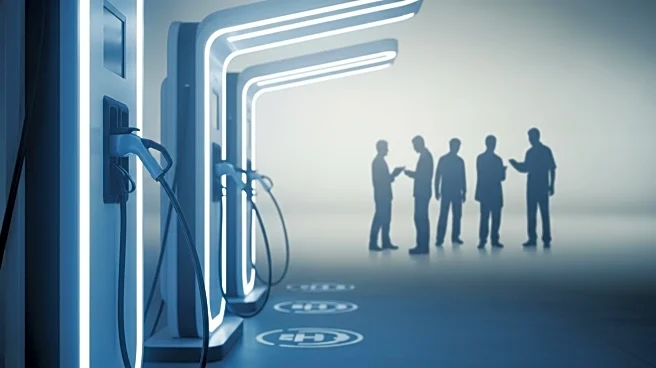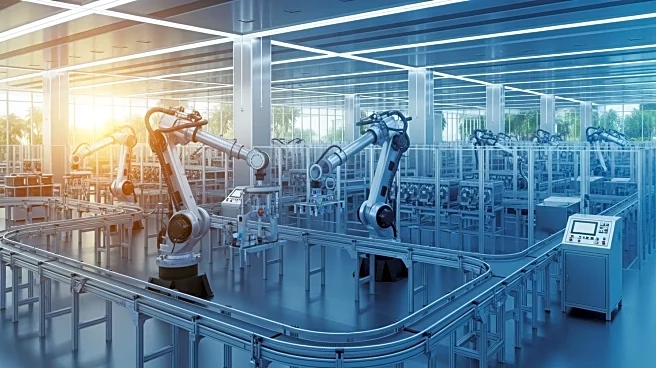What is the story about?
What's Happening?
Ford Motor Co. CEO Jim Farley has outlined the company's strategic direction in response to the expiration of federal tax credits for electric vehicles (EVs). Speaking at the Ford Pro Accelerate summit in Detroit, Farley predicted a decline in EV sales due to the loss of these incentives but emphasized Ford's readiness to pivot towards hybrid vehicles. He highlighted the importance of the 'Essential Economy,' which includes industries like manufacturing and transportation, and stressed the need for skilled tradespeople to support this shift. Farley also reflected on his five-year tenure, noting significant cost reductions and the need for further improvements in quality and profitability.
Why It's Important?
The expiration of federal tax credits for EVs could significantly impact the automotive industry, particularly companies like Ford that have invested heavily in electrification. Farley's focus on hybrids suggests a strategic pivot that could influence market dynamics and consumer preferences. The emphasis on skilled trades highlights a broader economic challenge of workforce shortages in critical sectors. Ford's ability to adapt to these changes will be crucial for maintaining its competitive edge and achieving its financial goals. The company's efforts to improve quality and expand its commercial vehicle business could also have long-term implications for its market position.
What's Next?
Ford plans to offer competitive lease payments to ease the transition away from federal incentives, with a focus on promoting hybrids and plug-in hybrids. The company is calling for increased vocational training and support for skilled trades to address workforce shortages. Farley aims to enhance Ford's profitability by diversifying revenue streams and improving operational efficiency. The company will also navigate policy changes, such as tariffs and environmental regulations, which could impact its financial performance. Ford's success in these areas will be critical for achieving its goal of becoming a 'North Star' company with robust profit margins.
Beyond the Headlines
The shift towards hybrids and the focus on skilled trades reflect broader economic and cultural trends. As the automotive industry evolves, the demand for new skills and training will grow, potentially reshaping labor markets and educational priorities. Ford's strategy may also influence other automakers' approaches to electrification and workforce development. The company's efforts to improve quality and reduce recalls highlight ongoing challenges in maintaining consumer trust and brand reputation. These developments underscore the complex interplay between technological innovation, economic policy, and workforce dynamics in shaping the future of the automotive industry.
















